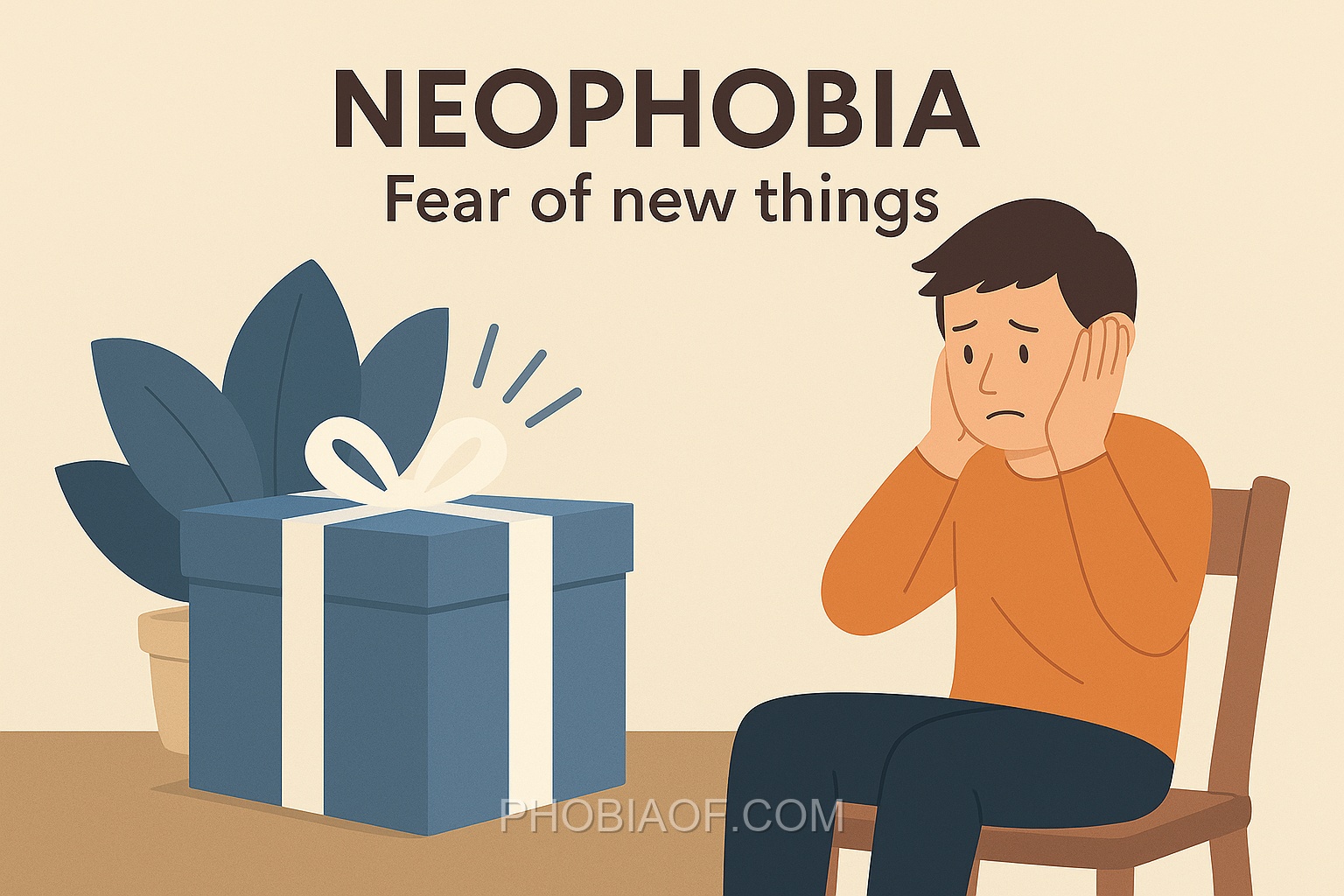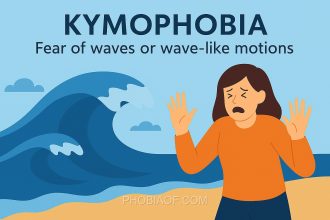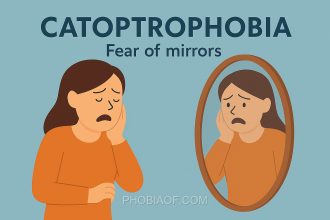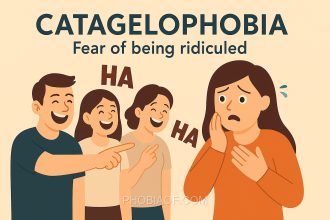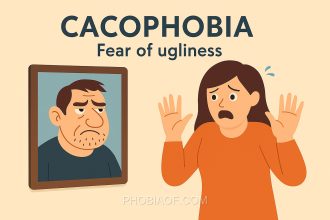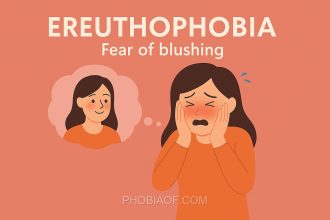Have you ever found yourself hesitating to try a new dish, visit an unfamiliar place, or embrace the latest technology? If so, you might be experiencing a touch of neophobia. But what exactly is neophobia, and how does it affect people in their everyday lives?
Neophobia, from the Greek words “neo,” meaning “new,” and “phobos,” meaning “fear,” refers to the fear of new things or experiences. This apprehension towards anything unfamiliar can manifest in various ways, impacting individuals differently. While a small dose of caution can be normal, neophobia can sometimes become a significant hurdle, affecting one’s personal growth and adaptation in a rapidly changing world.
For many, neophobia might mean avoiding new foods, sticking to the same routines, or resisting innovations. This fear can limit experiences, stifle creativity, and even hinder professional and personal development. However, understanding this fear is the first step towards overcoming it and opening up to the myriad of possibilities that new experiences can bring.
Addressing neophobia often involves small, gradual steps towards embracing change, coupled with a supportive environment that encourages exploration. By recognizing and acknowledging this fear, individuals can begin to take control and slowly expand their comfort zones.
Whether mild or more pronounced, neophobia is a common human experience. With awareness and effort, it is possible to transform this fear into curiosity and growth.
Causes of Neophobia
Neophobia, the fear of new things or experiences, can arise from various causes. Understanding these causes can provide insight into why some people develop this phobia while others do not. Below are some potential reasons for the development of neophobia:
- Genetic Predisposition:
Research suggests that genetics may play a role in the development of phobias, including neophobia. Individuals with a family history of anxiety disorders or specific phobias might be more prone to developing similar fears themselves.
- Traumatic Experiences:
Past traumatic experiences can significantly impact a person’s perception of new things. If someone has had a negative experience with a new situation or object, they may develop an aversion to new experiences in general as a protective measure.
- Learned Behavior:
Observing others who exhibit fear or anxiety towards new things can lead to learned behavior. For example, children who see their parents reacting fearfully to new situations may mimic this behavior and develop neophobia themselves.
- Psychological Factors:
An individual’s baseline anxiety levels and coping mechanisms can influence the development of neophobia. Those with higher anxiety may be more susceptible to fearing new experiences due to difficulty managing uncertainty and change.
- Environmental Factors:
The environment in which a person is raised can affect their comfort with new experiences. A highly restrictive or overly protective environment may limit exposure to new things, fostering fear when unfamiliar situations do arise.
Interestingly, some theories suggest that neophobia could have an evolutionary basis. Being cautious about new and unfamiliar situations might have been advantageous for survival, helping individuals avoid potential dangers. Although this cautiousness can be beneficial, it can also develop into a disproportionate fear, manifesting as neophobia.
Overall, neophobia is often the result of a combination of genetic, psychological, and environmental factors. Understanding these causes can help in addressing the phobia and finding effective treatment options.
Symptoms of Neophobia
Neophobia, the fear of new things or experiences, can evoke an intense feeling of fear or anxiety. This phobia can manifest in a variety of physical and emotional symptoms, making it challenging for those affected. Recognizing these symptoms is the first step in understanding and addressing this condition.
Common Physical Symptoms:
- Panic attacks, which may include a feeling of losing control or impending doom.
- Excessive sweating, especially when faced with a new situation or object.
- Rapid heartbeat, signaling the body’s fight-or-flight response.
- Shortness of breath, which can occur during moments of heightened anxiety.
- Nausea or stomach discomfort, often accompanying anxiety episodes.
Emotional and Behavioral Symptoms:
- Avoidance of new experiences or objects to prevent feelings of anxiety.
- Overwhelming dread or anticipatory anxiety about upcoming changes or new experiences.
- Irritability or agitation when confronted with change or unfamiliar situations.
- Difficulties concentrating, as anxiety can interrupt thought processes.
- Feelings of helplessness or being trapped when unable to avoid new situations.
When severe, these symptoms can significantly interfere with daily life, making it difficult for individuals to engage in social activities, pursue career opportunities, or even perform everyday tasks.
Treatment for Fear of New Things
Neophobia, or the fear of new things, can feel overwhelming, but it’s important to remember that it can be treated and managed over time. With the right approach, you can gradually overcome this fear and embrace new experiences. Let’s explore some effective treatment options and coping strategies that can guide you on this journey.
Proven Therapies
Several therapeutic approaches have been proven effective in treating neophobia:
- Exposure Therapy: This involves gradually facing your fear in a controlled environment. By slowly and repeatedly exposing yourself to new things, you can reduce the anxiety associated with them over time. This method helps desensitize the fear response, making new experiences less intimidating.
- Cognitive-Behavioral Therapy (CBT): CBT focuses on changing the fearful thoughts that contribute to neophobia. By identifying and challenging these thoughts, you can develop healthier, more positive thinking patterns. CBT provides practical strategies for managing anxiety and encourages new ways of thinking about unfamiliar situations.
- Counseling: Working with a counselor can provide a supportive space to explore your fears and develop personalized coping strategies. Counseling can help you understand the underlying causes of your fear and build confidence in facing new experiences.
Self-Help Coping Techniques
In addition to professional therapy, several self-help techniques can complement your treatment:
- Relaxation Exercises: Techniques such as deep breathing, progressive muscle relaxation, and visualization can help reduce anxiety symptoms and promote a sense of calm when faced with new situations.
- Meditation: Practicing mindfulness and meditation can enhance your ability to stay present and grounded, reducing the impact of fearful thoughts about new experiences.
- Support Groups: Connecting with others who share similar fears can provide encouragement and practical insights. Sharing experiences and strategies can make new challenges more manageable and less isolating.
Medication
In severe cases, medication such as anti-anxiety medications may be prescribed to help manage symptoms. However, it’s important to focus on therapy and coping skills as the primary means of overcoming neophobia.
Remember, seeking professional help is a positive step if fear of new things is interfering with your life. A mental health professional can tailor a treatment plan that meets your unique needs and supports your journey toward embracing new experiences with confidence and curiosity.
Conclusion
Understanding neophobia, the fear of new things, is a crucial step in addressing and overcoming this common phobia. By recognizing the causes and symptoms, individuals can better identify their own experiences and feel empowered to seek the necessary support. This awareness is the first step toward change and can significantly reduce the anxiety associated with unfamiliar situations.
While neophobia can be challenging, it’s important to remember that many people successfully manage or even overcome their fears with time, patience, and the right strategies. Whether through gradual exposure to new experiences, cognitive-behavioral techniques, or professional guidance, there are numerous ways to cope with and mitigate the impact of this phobia.
If you or someone you know is struggling with neophobia, consider reaching out to a therapist or talking to a healthcare provider. Professional support can provide tailored strategies and reassurance, making the journey toward overcoming fear less daunting. Remember, you are not alone, and with commitment and assistance, it is entirely possible to embrace new experiences with confidence and optimism.
Take the first step today by exploring the resources available and opening the door to a world of new possibilities.
